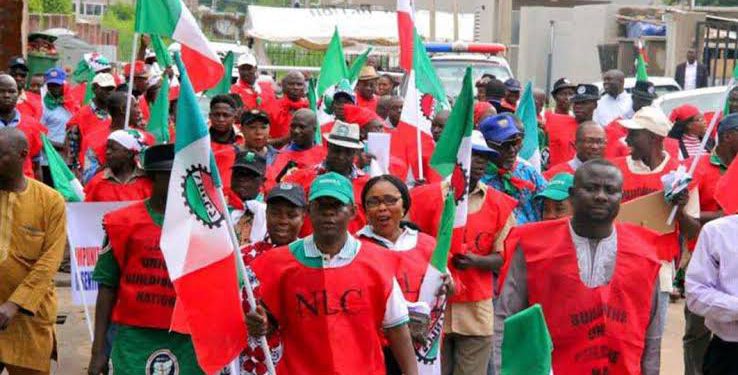The Nigeria Labour Congress (NLC) has issued a stern warning of a potential one-month nationwide strike if the National Assembly proceeds with plans to decentralize the national minimum wage. This move comes amid ongoing discussions to establish a new national minimum wage involving Organised Labour, the Federal Government, and the Organised Private Sector.
A Controversial Proposal
NLC President Joe Ajaero, speaking at the 67th Nigeria Employers’ Consultative Association Annual General Meeting in Lagos, expressed grave concerns over the legislative proposal. The Joint Committee of the Senate, the House of Representatives, and the Judiciary is considering removing section 34 from the Exclusive Legislative List to the Concurrent List. This change would allow state governors to set their own minimum wage rates, potentially eliminating a uniform national minimum wage.
Ajaero vehemently opposed this potential shift, arguing it would lead to unequal pay for similar work across different states. He emphasized that the concept of a national minimum wage is rooted in the principles of equity and equality, as recognized by the International Labour Organisation (ILO). He warned that such a decentralization would pave the way for state governors to impose “slave wages” on workers, exacerbating poverty and inequality.
Implications of Decentralization
The NLC President highlighted that wage determination should remain a federal responsibility to ensure fair and standardized compensation for workers nationwide. He noted that the current proposal could undermine the labour movement’s strength and reduce its ability to hold governments accountable. Moreover, he pointed out that while some states might argue financial incapacity to pay higher wages, the same rationale is not applied to governors’ salaries, which are uniform nationwide.
Response from the Legislative Branch
Kingsley Chinda, the Minority Leader of the House of Representatives, acknowledged the proposal’s existence but advocated for maintaining minimum wage matters on the exclusive legislative list. He suggested that while states and firms could set wages above the federal minimum, they should not be allowed to go below it. Chinda warned that decentralizing wage determination could lead to fragmented labour laws and weaker protections for workers, as states might establish their own industrial courts and regulations.
A Call to Action
Ajaero stressed the urgency of the situation, indicating that the NLC has already alerted its members to prepare for a possible strike. He urged the government to consider the broader implications of deregulating the minimum wage and to adopt measures that protect workers’ interests and promote economic stability.
In conclusion, the NLC’s firm stance against the proposed deregulation of the national minimum wage underscores the critical importance of maintaining a unified wage structure to ensure fair treatment and adequate compensation for all Nigerian workers. The looming threat of a nationwide strike highlights the potential for significant industrial action should the legislative changes proceed.



























































